COVID-19 RECOVERY IN ATHLETES: THE UK WORLD CLASS OLYMPIC AND PARALYMPIC EXPERIENCE

FEATURE / CRAIG RANSON & JAMES HULL
The COVID-19 pandemic has had and continues to have a devastating impact on global health. Within elite sport, there are typically three main considerations for health practitioners when assessing the athlete who has been infected with COVID-19. Firstly, the risk of illness to an athlete’s immediate health. During the early part of the pandemic, there was major concern over reports relating to a high incidence of COVID-19-related myocarditis in young athletes. Fortunately, subsequent well conducted studies provided some reassurance that this is not a common phenomenon in those with a previous diagnosis of COVID-19. Secondly, the nature of any guidance on acute management and subsequent return activity and duration recommendations. Thirdly, the identification of factors that indicate the likelihood of a prolonged recovery or ‘long COVID’ illness.
What have we learnt from the UK World Class Olympic and Paralympic Sport experience?
Practitioners from UK Home Country Sports Institutes (HCSI) in England, Scotland, Wales and Northern Ireland have closely monitored COVID-19 related illness in World Class Programme (WCP) Olympic and Paralympic Sport athletes, assessing the aforementioned factors.
Since the onset of the pandemic in 2020 to the present time, there have been 410 recorded cases of COVID-19 related illness in 357 athletes (Figure 1). This equates to approximately one quarter of the WCP population experiencing over 10,000 time-loss days (restricted or unavailable to train). The context of that time-loss was particularly pertinent given the preparatory cycle for the Tokyo summer and Beijing Winter Olympic and Paralympic games, disrupted not only by widespread illness, but also the mandatory training and travel restrictions imposed as part of the global public health strategy to manage the pandemic.
For the most part, COVID-19-related illness in the WCP cohort has been a relatively mild illness (i.e., not required hospital care or specific treatments). On balance, duration appears to be shorter lived as the pandemic progresses, with the median number days of restricted training reducing from 18 days during the first year (to end Feb 2021) to 13 days in the second year.
